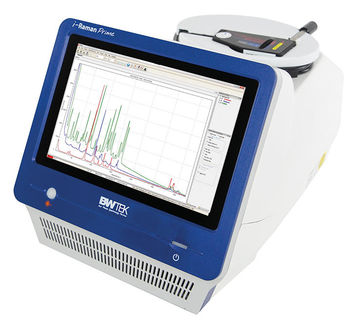To use all functions of this page, please activate cookies in your browser.
my.chemeurope.com
With an accout for my.chemeurope.com you can always see everything at a glance – and you can configure your own website and individual newsletter.
- My watch list
- My saved searches
- My saved topics
- My newsletter
Theoretical chemistryTheoretical chemistry involves the use of physics to explain or predict chemical phenomena. In recent years, it has consisted primarily of quantum chemistry, i.e., the application of quantum mechanics to problems in chemistry. Theoretical chemistry may be broadly divided into electronic structure, dynamics, and statistical mechanics. In the process of solving the problem of predicting chemical reactivities, these may all be invoked to various degrees. Other "miscellaneous" research areas in theoretical chemistry include the mathematical characterization of bulk chemistry in various phases (e.g. the study of chemical kinetics) and the study of the applicability of more recent math developments to the basic areas of study (e.g. for instance the possible application of principles of topology to the study of electronic structure.) The latter area of theoretical chemistry is sometimes referred to as mathematical chemistry. Much of this may be categorized as computational chemistry, although computational chemistry usually refers to the application of theoretical chemistry in an applied setting, usually with some approximation scheme such as certain types of post Hartree-Fock, Density Functional Theory, semiempirical methods (like for instance PM3) or force field methods. Some chemical theorists apply statistical mechanics to provide a bridge between the microscopic phenomena of the quantum world and the macroscopic bulk properties of systems. Theoretical attacks on chemical problems go back to the earliest days, but until the formulation of the Schrödinger equation by the Austrian physicist Erwin Schrödinger, the techniques available were rather crude and speculative. Currently, much more sophisticated theoretical approaches, based on Quantum Field Theory and Nonequilibrium Green Function Theory are in vogue. Product highlight
Branches of theoretical chemistry
Closely related disciplinesHistorically, the major field of application of theoretical chemistry has been in the following fields of research:
Hence, the theoretical chemistry discipline is sometimes seen as a branch of those fields of research. Nevertheless, more recently, with the rise of the density functional theory and other methods like molecular mechanics, the range of application has been extended to chemical systems which are relevant to other fields of chemistry and physics like biochemistry, condensed matter physics, nanotechnology or molecular biology.
Bibliography
Quotations
|
||||||
| This article is licensed under the GNU Free Documentation License. It uses material from the Wikipedia article "Theoretical_chemistry". A list of authors is available in Wikipedia. |







